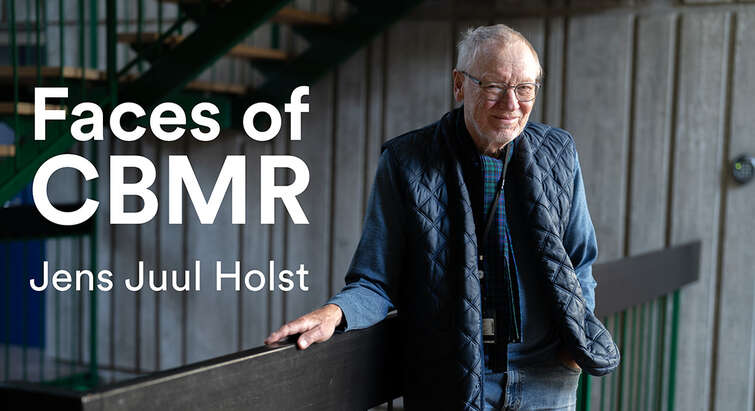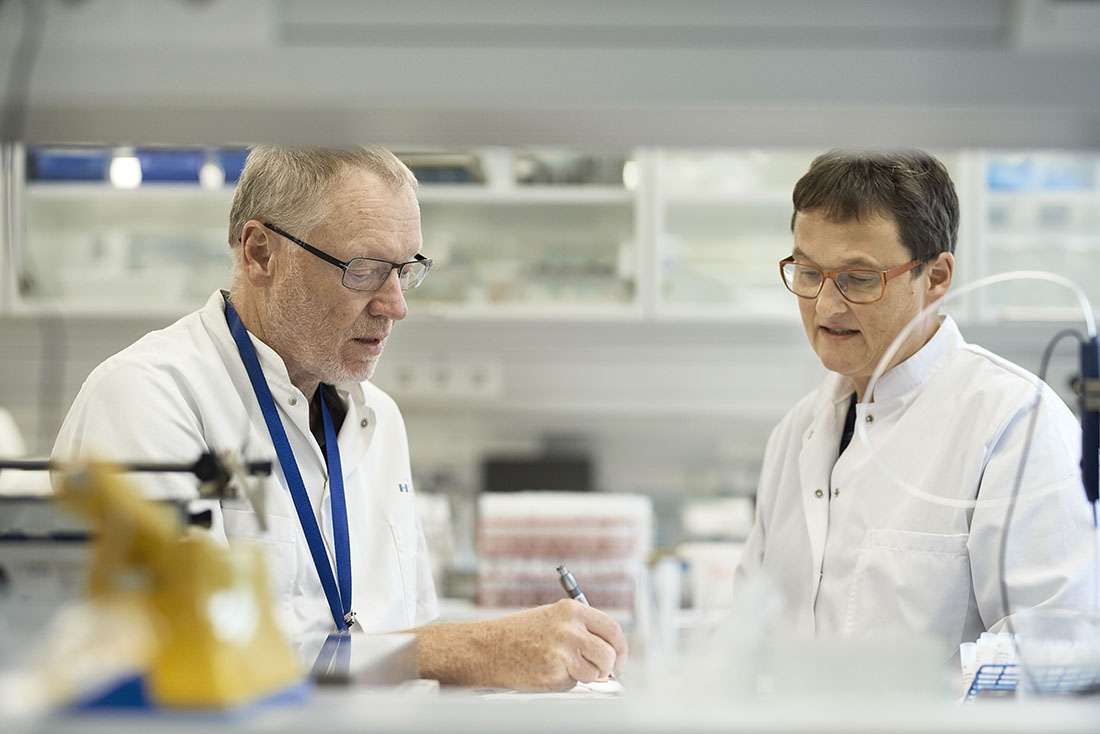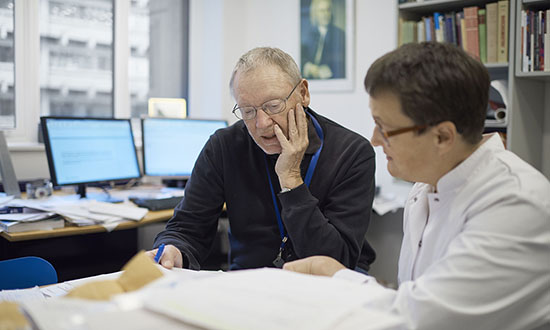
Endocrine Regulation of Metabolism in the Juul Holst Group
The overarching aim of the group is to understand the functional challenges of obesity and type 2 diabetes and to provide new principles for improved therapies. The group is conducting state of the art research in the field of translational physiology and has excelled in developing experimental models and assays resulting in identification and development of drugs based on the hormones GLP-1, GLP-2 and GIP.

Our primary research area is the physiology of peptide hormones and neurotransmitters, particularly those related to pancreatic and gastrointestinal functions and signaling.
The group has excelled in developing experimental models and assays enabling us to measure the secretion and actions of metabolically active gut and pancreatic peptide hormones . Our analyses are founded on immunological and mass spectrometry-based approaches, and the implementation of both single cell approaches, isolated perfused organs, in vivo animal studies, and notably, extensive human studies. Group leader prof. Juul Holst explains; “We strive to translate our experimental work into effective clinical studies in order to understand the functional challenges of obesity and diabetes, and to provide new principles for improved therapies”.
"The exaggerated glucagon-like peptide-1 response is important for the improved β-cell function and glucose tolerance after Roux-en-Y gastric bypass in patients with type 2 diabetes"
Published in Diabetes in 2013. The clinical and experimental proof for the importance of GLP-1 for the remission of diabetes after gastric bypass.
"Insulin Secretion Depends on Intra-islet Glucagon Signaling"
Published in Cell Reports in 2019. An elegant demonstration of the important paracrine regulation of insulin secretion by intraislet glucagon.
"Paracrine crosstalk between intestinal L- and D-cells controls secretion of glucagon-like peptide-1 in mice"
Published in American Journal of Physiology - Endocrinology and Metabolism in 2019 Experimental proof for the paracrine regulation of intestinal GLP-1 secretion by somatostatin, providing background for the development of somatostatin-5-receptor antagonists for diabetes therapy.
The Juul Holst Group focuses on the following main research areas:
The endocrine pancreas
Regulation of secretion of insulin, glucagon and somatostatin including neural , metabolic and paracrine mechanisms with an emphasis on studies in isolated perfused pancreases from mice and rats with metabolic, pharmacological, and genetic modifications
The role of pancreatic and intestinal hormones in bone physiology
Focuses on pancreatic and intestinal hormones and their role in intestinal and bone physiology. This includes both animal (mice, rat and pig) studies as well as human studies (gastric bypass patients, diabetic patients and healthy controls). In addition, we are continuously working on assay development to improve our unique spectrum of assays for measuring gastrointestinal hormones.
Clinical translation of diabetes and obesity
Focuses on providing insights into the biological function in humans of the genes behind the strong genetic component of obesity and diabetes, as well as into the treatment potential. Clinically targeting these dysfunctionalities will, with time, improve the prevention, diagnosis and treatment of type-2 diabetes and obesity. Therefore, the overall aim is to clinically translate knowledge of rare genetic variants in genes encoding beta-cell and appetite regulating proteins into actions of personalised prevention, diagnosis and treatment of obesity and diabetes.
Metabolism and physiology of enteroendocrine hormones
Centers on the degradation and metabolism of the entero-pancreatic hormones (GLP-1, GLP-2, GIP, PYY, glucagon), the physiology and pathophysiology of the incretin hormones, and the therapeutic applications of the incretin hormones, GLP-1 analogues and DPP-4 inhibitors in the treatment of type 2 diabetes.
Integration of the gut in human glucose metabolism and its role in diabetes and obesity
Centers on the pathophysiology of type 2 diabetes (with focus on glucagon and the gut-derived incretin hormones), obesity, regulation of appetite and food intake and utilization of incretins as therapeutics. Our main focus is on integration of the gut (including enteroendocrinology, microflora and bile acid biology) in the understanding of human glucose metabolism and its role in type 2 diabetic pathophysiology.
Partners: Our group works in close collaborations with the Dept. of Endocrinology at Hvidovre University Hospital and Center for Clinical Metabolic Research, Gentofte Hospital and also with the Clinical Proteomics in the Mann Group at the Novo Nordisk Foundation Center for Protein Research.
Additionally, the group collaborates with numerous national and international collaborators.
Funding: Since its inception in 2010 the Juul Holst Group has been awarded numerous grants from the Novo Nordisk Foundation. The most recent grants being “A new understanding of Glucagon Physiology” and “Amino Acids and glucagon constitute an endocrine feedback loop - The liver-alpha cell axis”.
In 2015 Professor Juul Holst was awarded an advanced grant from the European Research Council for the project “Reaching the effects of gastric bypass on diabetes and obesity without surgery”. The award funds research until December 31, 2021.
News


Research Pioneer in Diabetes Receives Prestigious Harvard Prize
Staff list
| Name | Title | Phone | |
|---|---|---|---|
| Holst, Jens Juul | Professor |



